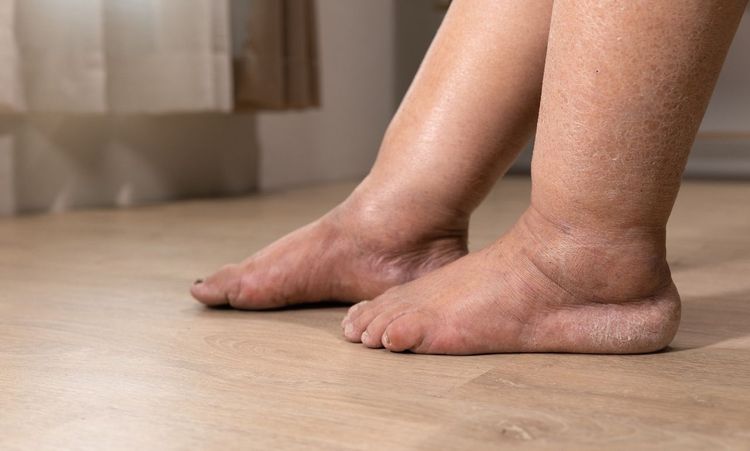Getting back on your feet after hip replacement surgery is a journey. One thing many patients notice is swelling in the leg. It's a common concern, but what's behind it?
Why Swelling Happens Post-Surgery
After hip replacement surgery, your body goes through significant changes. Swelling, medically known as edema, is your body's natural response to the trauma of surgery. Let's break it down.
The Inflammatory Phase

When your body undergoes surgery, it enters the inflammatory phase. Thousands of cells rush to the surgical site to start the healing process. This influx of cells brings fluid, causing swelling. Gravity also plays a role, especially in the legs.
Surgical Trauma
During hip replacement, the surgeon removes the diseased parts of the hip joint and replaces them with prosthetic components. This process involves cutting through skin, muscles, and other tissues, leading to inflammation and fluid accumulation.
Reduced Mobility
Post-surgery, you’ll spend a lot of time resting. This reduced mobility can cause fluid to pool in the leg, contributing to swelling. As you start moving around, the swelling might initially increase before it starts to subside.
Key Factors Contributing to Swelling
Several factors can influence the extent and duration of swelling after hip replacement surgery:
- Type of Surgery: Minimally invasive techniques typically result in less swelling compared to traditional methods.
- Patient's Health: Pre-existing conditions like diabetes or vascular diseases can exacerbate swelling.
- Post-Operative Care: Proper care, including exercises and medication, plays a crucial role in managing swelling.
Managing Swelling Post-Surgery
Elevation
One of the simplest and most effective ways to reduce swelling is by elevating your leg. Aim to keep your leg above heart level several times a day for about 20-30 minutes.
Ice Therapy

Apply ice packs to the swollen area. Ice constricts blood vessels, reducing fluid flow to the area and thereby decreasing swelling.
Compression Stockings
Wearing compression socks can help manage swelling by promoting blood flow and preventing fluid accumulation in the legs.
Movement
Staying active within your movement restrictions is vital. Gentle exercises like ankle pumps and short walks can help improve circulation and reduce swelling.
Hydration and Diet
Staying hydrated and maintaining a balanced diet can significantly impact swelling. Avoid foods high in salt as they can cause fluid retention.
Warning Signs: When to Contact Your Doctor
While some swelling is normal, excessive swelling can indicate complications such as infection or deep vein thrombosis (DVT). Be alert for these signs:
- Infection: Redness, warmth, increased pain, fever, or drainage from the incision site.
- DVT: Severe swelling, pain in the calf, redness above or below the knee.
If you notice any of these symptoms, contact your healthcare provider immediately.
Long-Term Precautions
Even after the initial recovery period, it’s important to take precautions to maintain your hip health:
- Avoid high-impact activities like running or jumping.
- Be cautious with movements that put excessive strain on your hip.
- Follow your doctor's advice on long-term care and exercises.
Table Comparing Tips from Different Sources
Source
Tips for Managing Swelling
Ice, elevation, compression stockings, gentle exercises
Ice, elevation, compression, anti-inflammatory medications, diet
Elevation, ice, gentle exercises, hydration
Elevation, ice, compression stockings, movement, medication
Conclusion
Swelling in the leg after hip replacement surgery is a common but manageable issue. By following the tips outlined above and staying in close contact with your healthcare provider, you can ensure a smoother recovery. Remember, each patient's journey is unique, so tailor these suggestions to fit your specific needs.




